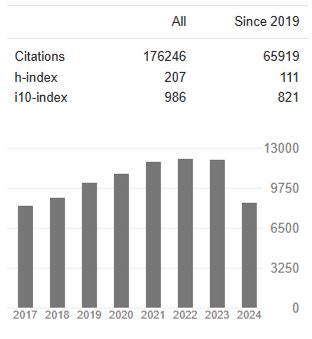Behavioral Patterns of Psychiatric Patients Using Synthetic Cannabinoids
Abstract
Sabina Fink, Ronak Patel, Raminder Cheema, Houssam Raai, Ali Khadivi, Luisa Gonzalez, Panagiota Korenis
Synthetic cannabinoids (SC) are analogs of natural cannabinoids that are chemically synthesized. These compounds are used frequently in the community as illicit substances. Literature review indicates that its use is increasing due to its easy accessibility despite it being placed under Schedule I of the Synthetic Drug Abuse Prevention Act of 2012. SC is readily found in most inner urban communities across the United States and its abuse is increasing at a high rate. Studies suggest that SC can result in medical and psychiatric manifestations including: vomiting, tachycardia, seizures, auditory hallucinations, aggressive behavior and an increase in impulsivity. The increase in prevalence compounded with the potentially devastating psychiatric sequelae raise concerns for mental health practitioners. While some literature exists that reviews the psychiatric manifestations of patients who use SC, there are no studies that review the presentation of patients of patients behavior’s while intoxicated At this time SC drug screening is not readily available in most hospital centers and intoxication with SC is primarily based on a clinical evaluation, patient’s self-report or collateral information. We conducted a retrospective case control study of patients who were admitted to the inpatient psychiatric service for a period of 7 months from who reported smoking SC. This paper will attempt to explore specific clinical risk factors of patients that use SC and the aggressive behavior of these patients while hospitalized as well as whether this increases duration of hospitalization and management on the unit In addition, we aim to bring to light the need for future investigations to better understand how to manage this difficult patient population.




